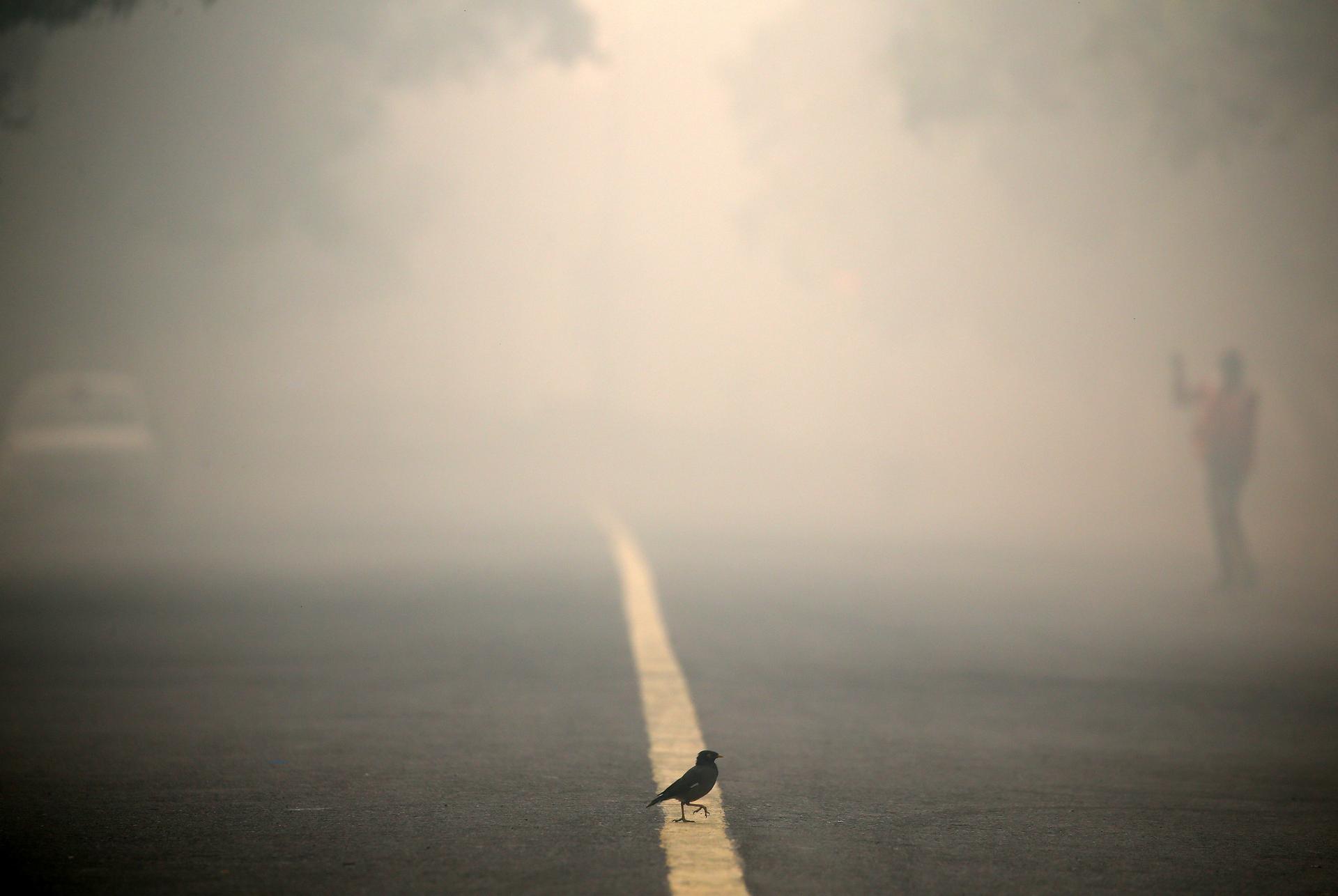Choking smog in Delhi has led to ‘health emergency’ warnings
A bird crosses a smog-covered road in Delhi, India, on Oct. 31, 2016.
Authorities in Delhi closed schools, halted construction work and shut down a major power plant on Monday after days of choking smog led to warnings of a "health emergency" in the world's most-polluted capital.
Pollution levels have spiked in recent days, as farmers in neighboring Indian states burn crop "stubble" after the harvest, and temperatures cool, trapping pollutants in a smoggy haze over the city.
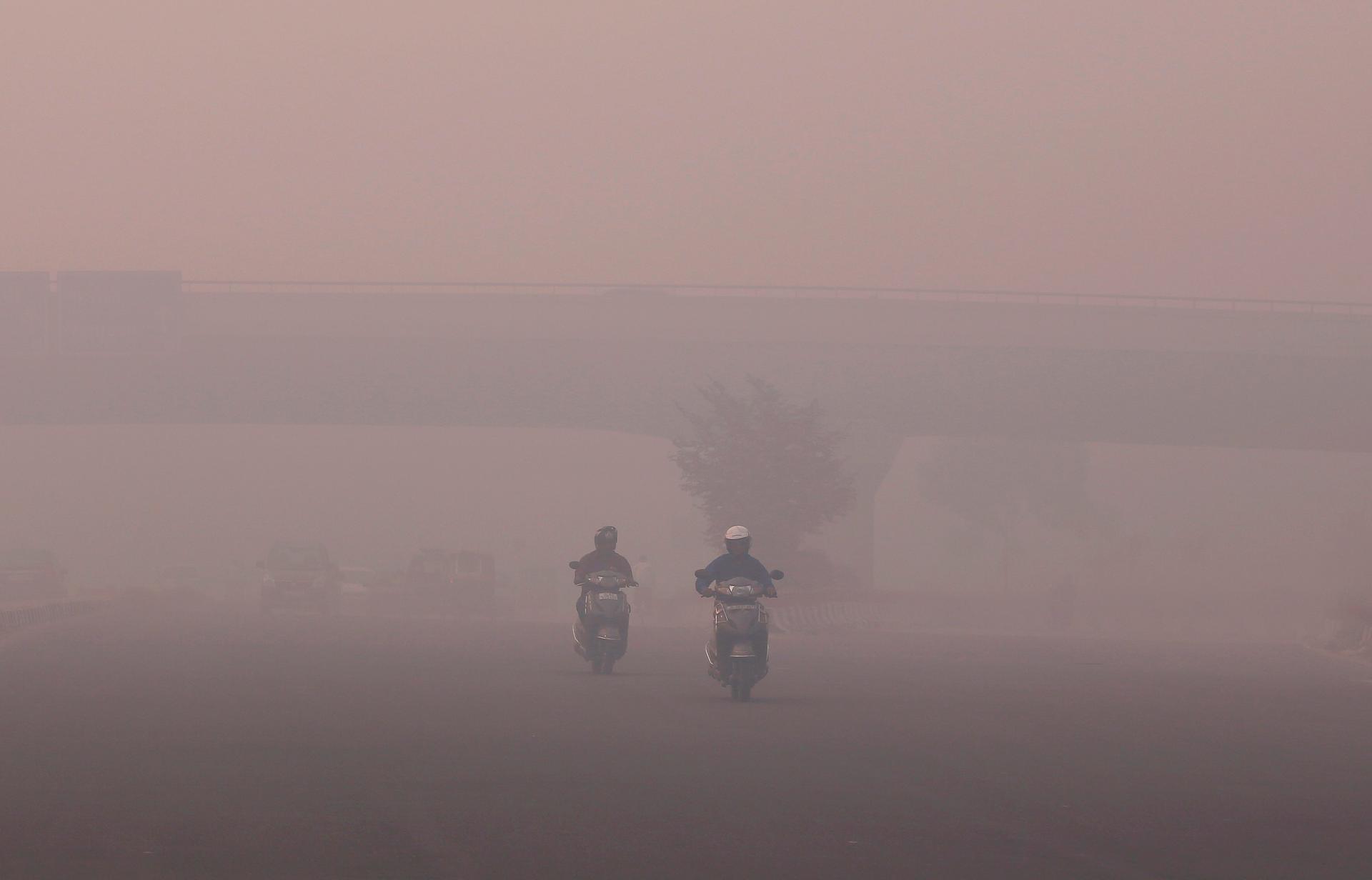
Delhi's air quality generally worsens with the onset of autumn, particularly after the Diwali festival when millions of revelers let off heavily polluting firecrackers.
But this year's change has been particularly dramatic, with the American embassy reporting hazardous pollution levels for several days running.
On Monday morning, it put levels of PM2.5 — the fine particles linked to higher rates of chronic bronchitis, lung cancer and heart disease — at an off-the-charts 778.
Levels between 301 and 500 are classified as "hazardous," meaning everyone faces a risk of respiratory effects and should stay indoors, while levels above 500 are beyond the official index.
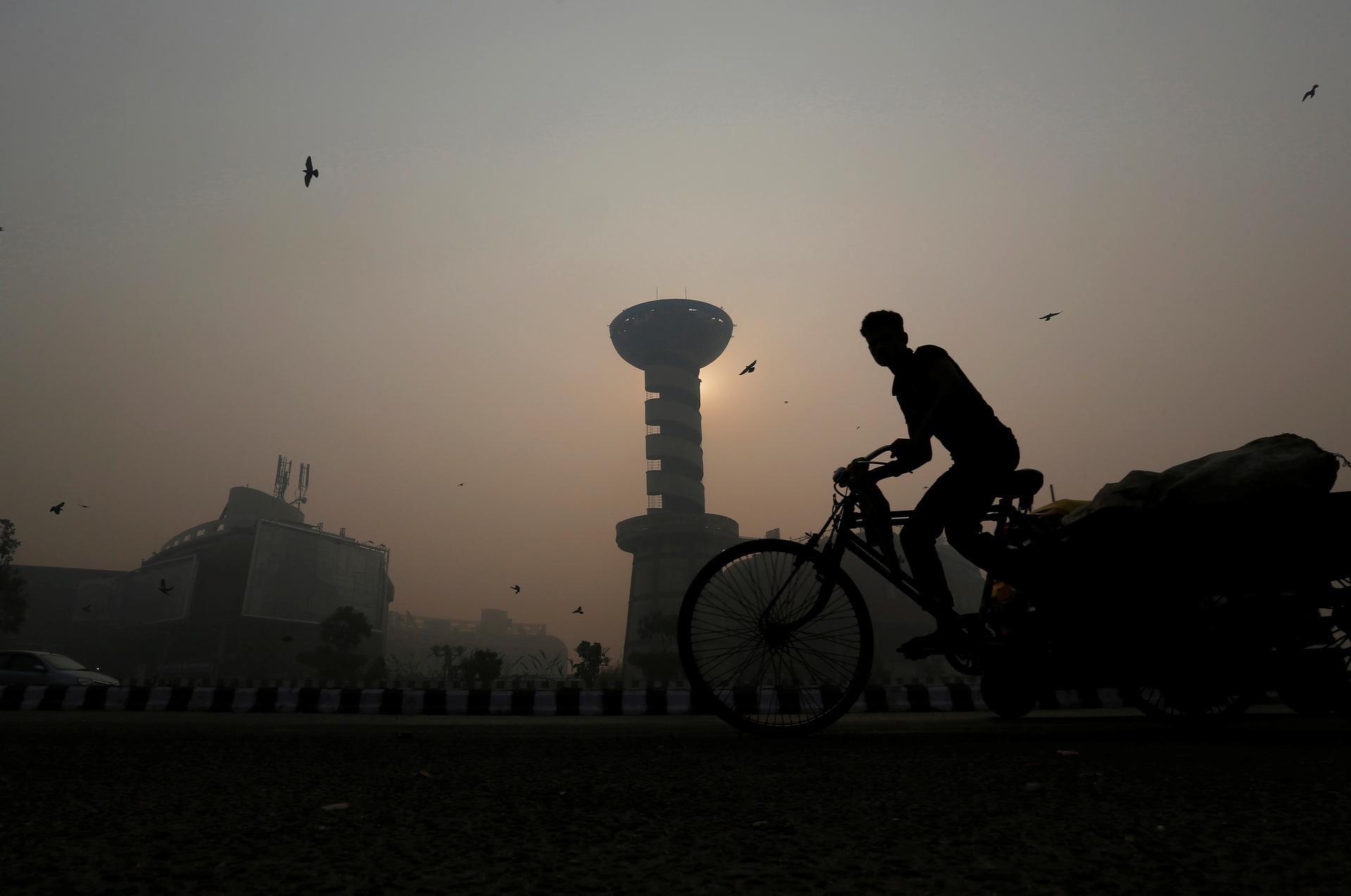
Manan Mahato, who drives an auto rickshaw in Delhi, said he had sent his children to his native village because he was worried about their health.
"It has become risky to stay in Delhi because of the pollution," he said, holding a handkerchief over his mouth because he cannot afford a proper face mask.
"I am sending my children back to the village as I am worried for their health. If it stays like this, I think this city won't be livable anymore."
On Sunday, hundreds of people, many wearing face masks, gathered in central Delhi to demand immediate action to curb the pollution levels, currently around 30 times the World Health Organization's recommended PM2.5 safe limit of 25 micrograms per cubic meter of air.
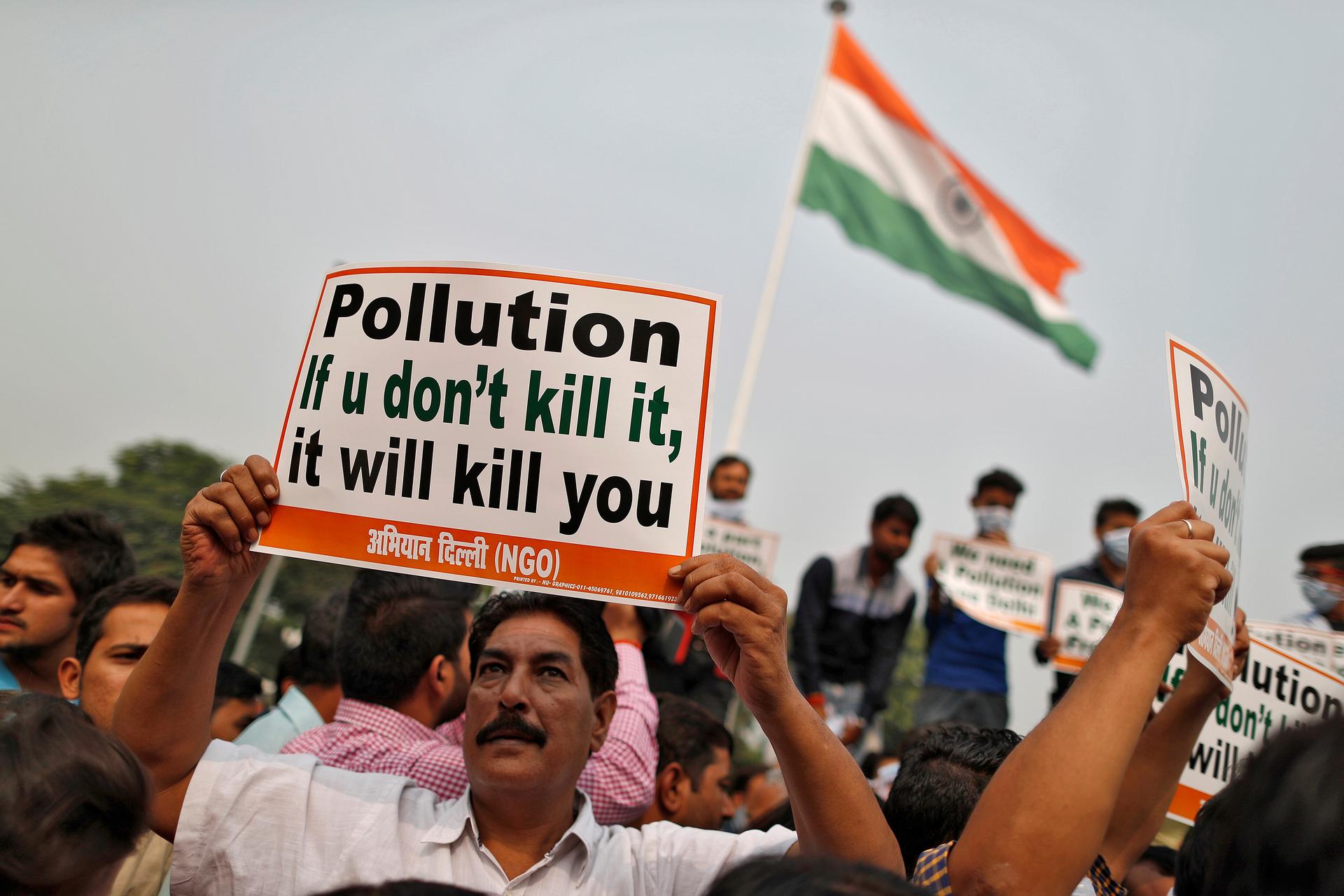
'Emergency situation'
Long lines formed outside shops selling face masks, a relative novelty in Delhi as are the air purifiers that now feature in the homes of wealthy residents.
Delhi Chief Minister Arvind Kejriwal and his top ministers held a meeting later Monday with the city's lieutenant-governor, who announced a ban on firecrackers, including at weddings, though he exempted religious events.
The Delhi government on Sunday announced a series of measures including shutting schools for three days, banning all construction work for five days and the temporary closure of a coal-fired power plant.
It also said it was considering "cloud seeding" to produce rain, a technique Beijing used to clear the air before the 2008 Olympic Games.
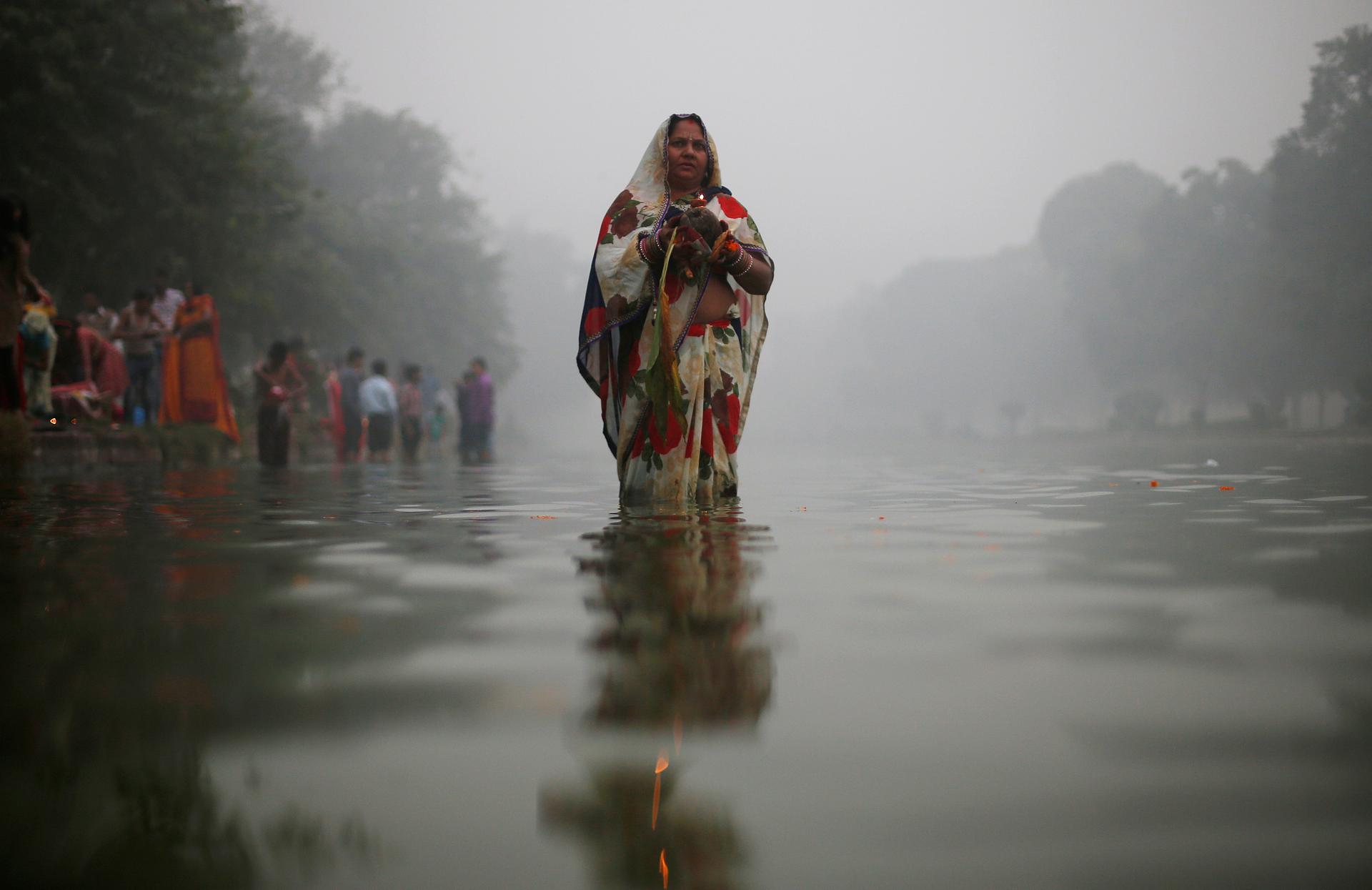
Anumita Roychowdhury, executive director of the Delhi-based Centre for Science and Environment (CSE), said the city faced an "emergency situation."
"These temporary emergency measures are critical for bringing down the peak pollution levels," she said.
"Of course this cannot be permanent, you cannot keep people indoors forever," she added.
A 2014 World Health Organization survey of more than 1,600 cities ranked Delhi as the most polluted.
Kejriwal, the Delhi chief minister, said he may reintroduce car rationing in the city after a successful two-week trial earlier this year.
But the Delhi government is powerless to stop the mass burning of fields in the nearby states of Haryana and Punjab.
Businessman Harish Sharma said the authorities had "completely failed" to tackle pollution.
"We have to save the present generation as well as the future generations from this disaster," he told AFP.
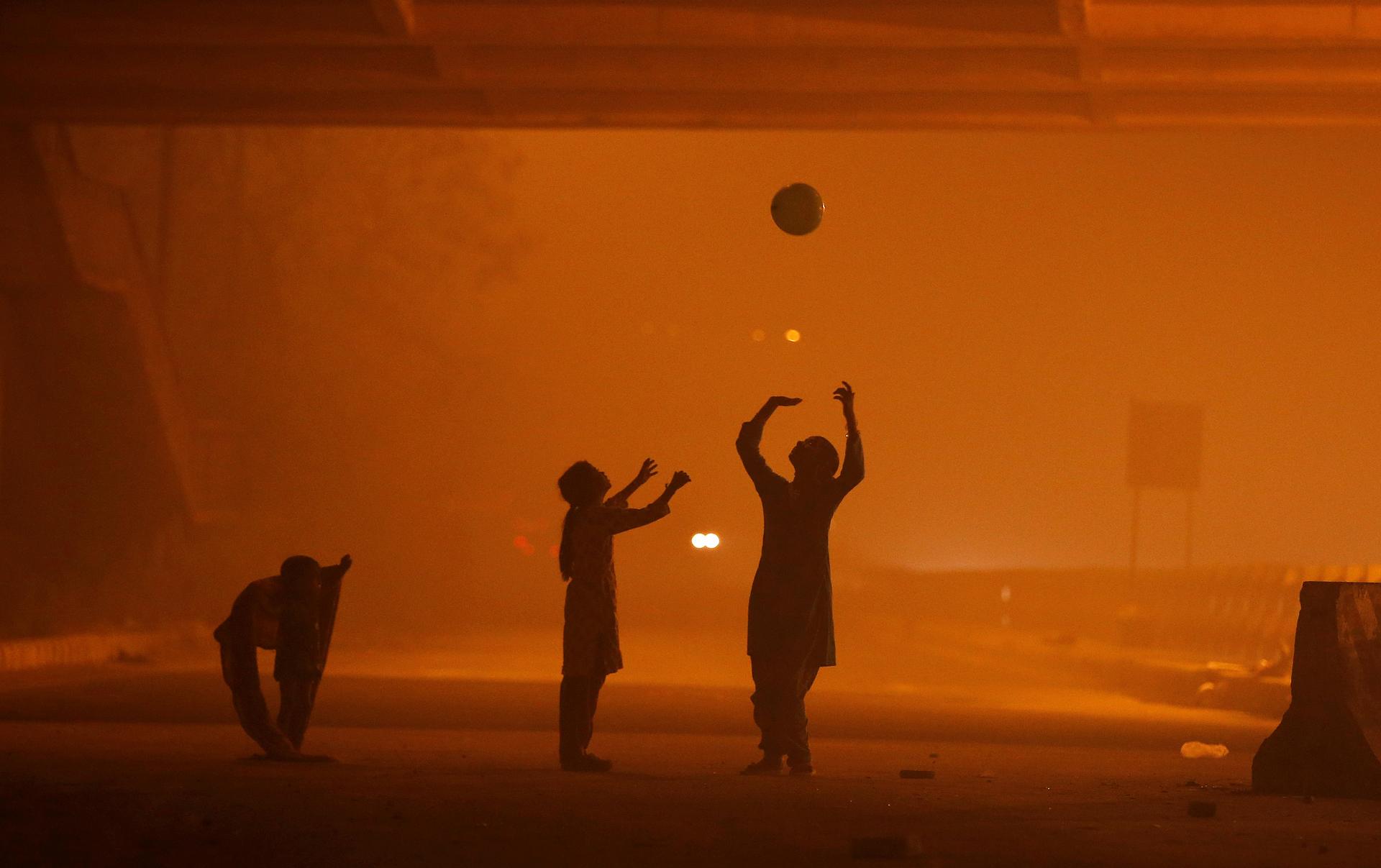
Sunita Narain, head of the CSE, which has petitioned the Supreme Court to force the government to act, called it a "public health emergency."
"The situation is very bad. The poisonous air is very harmful for all of us," she said.
"We hope the court will hear our plea and order the governments to do whatever is required."
The court is due to hear the petition on Tuesday.
People in Delhi are sharing their thoughts of the pollution on Twitter. Here are a few tweets.
We want to hear your feedback so we can keep improving our website, theworld.org. Please fill out this quick survey and let us know your thoughts (your answers will be anonymous). Thanks for your time!
